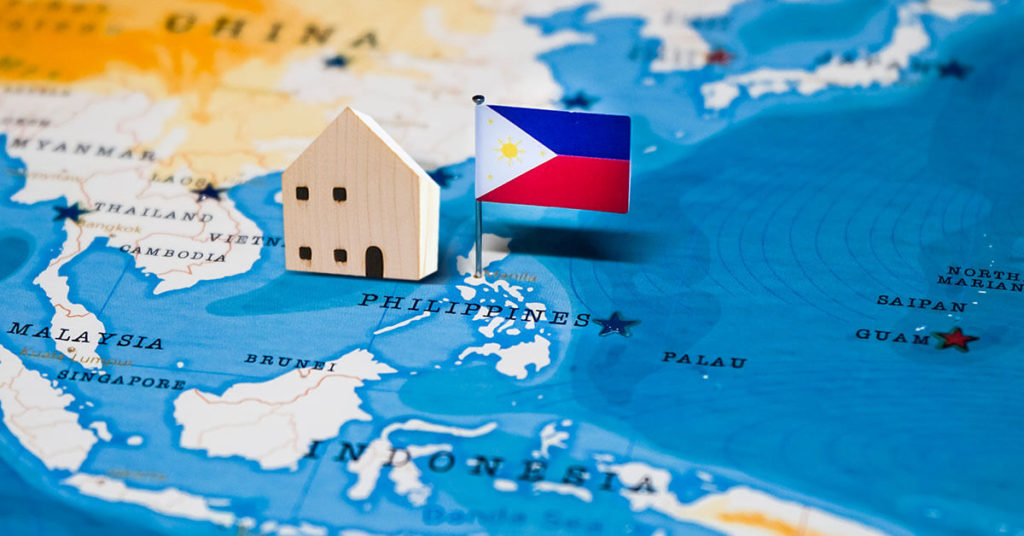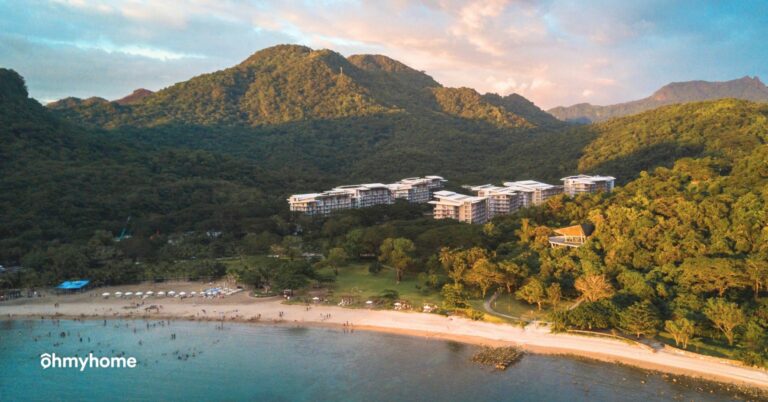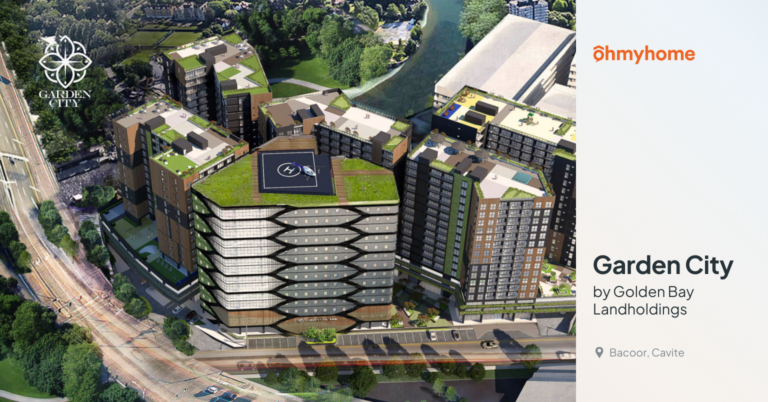Whether seasoned investors or novice buyers, many agree that real estate is among the most sensible investments to make. From being a tangible asset that is more or less non-renewable (land) to being almost-always guaranteed to appreciate in value over time, property is indeed worth purchasing and adding to an investment portfolio.
Even in countries like the Philippines-which continues to be significantly affected by the ongoing Covid-19 pandemic-real estate appreciation has kept pace and has proven property is a solid investment for aspiring owners.
Homes for sale in the Philippines have been comparatively more affordable than many other countries before the pandemic, and is the reason why both overseas Filipinos and non-Filipinos choose to reside in the country when the opportunity arises.
Then, there are the draws of living in the Philippines, which has been a reason for many foreigners to consider buying properties here. Among these are:
The country’s largely tropical climate. Be if for health reasons or just as preference, living in warm weather is what many come to the Philippines for.
The cost of living in the Philippines is comparatively less expensive than Western countries and even several in Southeast Asia.
Communities in the Philippines range from highly-urbanized cities to beach-side towns that give property seekers various location choices for where they want to live or invest in.
Yet, with some restrictions in place for foreign property ownership in the Philippines, how exactly do foreigners go about legally buying real estate in the country?
First, know what type of property you can/can’t invest in
Land
A widely-known restriction for foreign investors is the inability to specifically buy and own land. According to Philippine law, ownership of land in the country is reserved for persons or entities legally defined as Philippine nationals or Filipino citizens. Corporations with 60-percent Filipino ownership are treated as a Philippine national as well.
Foreigners still interested in investing in land in the country can consider becoming part of a corporation. Just remember, under the provisions of the Philippines’ Anti-Dummy Law, the number of foreign members on the Board of Directors of a landholding company is limited to 40-percent foreign participation.
Apart from being part of a corporation, there are other ways foreigners can legally own land in the Philippines, which is based on the following exceptions:
The land was acquired before the 1935 Constitution took effect.
It is acquired through hereditary succession if the foreigner is a legal or natural heir
It is purchased by a former natural-born Filipino citizen subject to the limitations prescribed by law (natural-born Filipinos who’ve acquired foreign citizenship are entitled to own up to 5,000 sqm of residential land, and 1 hectare of agricultural land).
Marriage to a Filipino who has retained their Filipino citizenship. (Technically this is buying and owning land under the Filipino spouse’s name.)
Securing a Special Resident Retirees Visa (SSRV). It is a special type of visa that grants the foreigners retiring in the Philippines multiple-entry privileges and the right to stay in the country permanently or indefinitely. This must be renewed annually and gives the holder the benefit of owning land in the Philippines.
Condominium
Although non-Filipinos are unable to outright own land in the Philippines, they may own houses and other buildings-just simply not the land which these structures stand on.
The considerably easiest among these to acquire are condominiums because what is only being purchased from the get-go is the unit, not the land itself. Keep in mind however that under the Philippine Condominium Act, foreigners can indeed buy condominiums in the Philippines, but only as long as 60-percent of the units in the building are owned by Filipinos.
In these instances, it is important to check with the seller or real estate agent if there are indeed units available for foreign ownership, and that it is well within the limit to avoid possible forfeiture.
House
A ‘freestanding’ house is also another avenue for non-Filipino property ownership in the Philippines, despite not being able to own the land it stands on. The latter will simply be leased, while the home located on it will be what a foreign owner will have to his or her name.
Under the Investor’s Lease Act of the Philippines, foreign nationals can enter into a lease agreement with Filipino landowners for an initial period of as much as 50 years, with a one-time option to renew for another 25.
Consider the added expenses
Generally, there is usually more than just the property’s price to pay for when buying real estate. This is no different in the Philippines, which has its own particular set of fees that have to be paid by property buyers and/or sellers as mandated by law.
Among these are the Documentary Stamps Tax, Transfer Tax, Registration Fee, Notarial Fees, and Loan Fees. Taking these into consideration will help better ensure that not only the purchase is within budget, but that there are no delays in processing-which when it happens can lead to penalties and additional expense.
In addition, there will likely also be the costs associated with the type of property selected. Among these is the cost of leasing land or-if a condominium unit is what was purchased-association fees, to name a few.
Find the best and latest homes to buy in the Philippines
Once you’re set on a budget, property type, and have zeroed in on a specific location or two, you can look for real estate for sale in the Philippines by way of the following:
Local real estate professionals
Partnering with an agent or broker, especially one who specializes in the type of real estate to be bought and/or the location, is essential in being able to ensure the property is of the best possible value and is bought at a fair price.
Additionally, a reliable agent or broker can provide extensive assistance in the fulfillment of the real estate transaction process. Be it valuation, applying for a loan, or processing paperwork and paying needed fees, things can go smoothly and be easier on you-even if, say, you are overseas for most of the process-when working with the right real estate professional.
Search online
In the event that you are indeed out of the country and are unable to personally visit available properties for sale, going online is another way to at least discover what properties are presently available in the Philippines. While searching for real estate online is not quite the same as being able to visit it in person, it does allow buyers to look at several options in different locations in a shorter amount of time.
Thanks to continued advances in technology, it has become easy to narrow down property listings and pinpoint viable investments. Granted, some platforms tend to have low quality or duplicate listings, others, such as Ohmyhome, are known to not only feature the highest quality listings, but also have user features that allow buyers to complete transactions from start to finish.
Committed to helping everyone find homes that fit their exact needs and preferences, Ohmyhome offers professional real estate services that ensures you experience the smoothest property transactions possible. Be it searching for viable properties for sale or completing needed real estate documents, you can count on Ohmyhome’s Buying from Overseas solutions to cover all your needs.
Launched in September 2020 in the Philippines, Ohmyhome was also launched in Malaysia, following its founding and subsequent success in Singapore in 2016. If you are buying either Malaysia or Singapore, please feel free to reach out to the Ohmyhome team in your country and receive in-person assistance regarding your Philippines property investment.
To view the best and latest properties for sale in the country, please visit the Ohmyhome property investments page, or download the Ohmyhome app to conveniently view listings and access buying Philippines properties from overseas services and information conveniently on your mobile phone.
Ohmyhome was launched in the Philippines in September 2020, following the company’s establishment of a tech team in the country in 2017. Ohmyhome was originally founded in 2016, and subsequently rose in Singapore as a leading PropTech solution and licensed real estate agency.
Ohmyhome expanded into the Philippines so that Filipino home seekers can have a real estate partner that they can trust to have their best interests at heart and can be relied upon to provide exceptional services throughout the entire property journey.
Featuring thousands of properties across many of the Philippines’ major real estate brands, Ohmyhome differs from other local platforms by going the extra mile and extensively helping buyers narrow down the choices and find the property that best suits their budgets, home needs, and lifestyle preferences.
The company’s Real Estate Agents not only help in the shortlisting of options, but also provide professional services through the entire purchasing process. These include assistance in property inspections, negotiations, the finalization of the Conditions of Sale, deposit collection, the submission of property documents, as well as providing buyers regular updates.
Ohmyhome helps Filipinos find their dream homes, all while making sure each real estate transaction is complete and is an efficient and enjoyable experience.























































